With the new Premier League season just around the corner and a host of familiar and new players gracing the league, there’s plenty of stories to be written, metaphorically and literally. Here, we take a look at each club and pick an already published autobiography from a player of the Premier League era that’s worth a read and one from the current crop that would appeal.
Liverpool
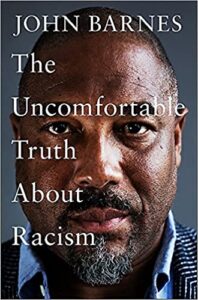 Past: As one of the most successful teams in English football, the Premier League eluded Liverpool for almost three decades, but after near-misses in 2002, 2009, 2014 and 2019, they finally put their PL duck behind them, scooping the top trophy in 2020. For a club that has had FA Cup, League Cup and Champions League success in that time, the Premier League was a long time coming, but the 2019/20 team guaranteed their place in the Reds’ long history. When it comes to past players, the Premier League roster reads like a who’s who of the best footballers in the world, so it comes as no surprise that a fair few autobiographies have followed. In fact, Liverpool are amongst the best represented when it comes to former players. Indeed, you can make a veritable XI of Liverpool Premier League autobiographies: Dudek – A Big Pole in Our Goal (which just edges out Pepe Reina’s Pepe purely on its title); Jamie Carragher – My Autobiography/The Greatest Games; Neil Ruddock – Hell Razor/The World According to Razor; Sami Hyppia – From Voikkaa to the Premiership; John Arne Riise – Running Man; Jamie Redknapp – Me, Family and the Making of A Footballer; Steven Gerrard – My Story; Gary MacAllister – Captain’s Log; Fernando Torres – El Nino; Robbie Fowler – My Life in Football; and Luis Suarez – Crossing The Line. That list excludes books by Xabi Alonso and Dirk Kuyt which are yet to be translated into English, as well as books by Bruce Grobebelaar, Jason McAteer and Michael Owen. Whilst John Barnes published his autobiography in 1999, my pick is his forthcoming book The Uncomfortable Truth About Racism.
Past: As one of the most successful teams in English football, the Premier League eluded Liverpool for almost three decades, but after near-misses in 2002, 2009, 2014 and 2019, they finally put their PL duck behind them, scooping the top trophy in 2020. For a club that has had FA Cup, League Cup and Champions League success in that time, the Premier League was a long time coming, but the 2019/20 team guaranteed their place in the Reds’ long history. When it comes to past players, the Premier League roster reads like a who’s who of the best footballers in the world, so it comes as no surprise that a fair few autobiographies have followed. In fact, Liverpool are amongst the best represented when it comes to former players. Indeed, you can make a veritable XI of Liverpool Premier League autobiographies: Dudek – A Big Pole in Our Goal (which just edges out Pepe Reina’s Pepe purely on its title); Jamie Carragher – My Autobiography/The Greatest Games; Neil Ruddock – Hell Razor/The World According to Razor; Sami Hyppia – From Voikkaa to the Premiership; John Arne Riise – Running Man; Jamie Redknapp – Me, Family and the Making of A Footballer; Steven Gerrard – My Story; Gary MacAllister – Captain’s Log; Fernando Torres – El Nino; Robbie Fowler – My Life in Football; and Luis Suarez – Crossing The Line. That list excludes books by Xabi Alonso and Dirk Kuyt which are yet to be translated into English, as well as books by Bruce Grobebelaar, Jason McAteer and Michael Owen. Whilst John Barnes published his autobiography in 1999, my pick is his forthcoming book The Uncomfortable Truth About Racism.
Present: Liverpool can already count two published authors amongst their ranks in James Milner, who published Ask A Footballer in 2019, and Andy Robertson, who published Now You’re Gonna Believe Us in 2020. And with some of the league’s biggest hitters in their squad, it’s likely that the writing bug will catch on. But where to start? In goal, with Alisson, who has already won the Copa America and Best FIFA Goalkeeper Awards on top of the Premier League, Champions League and Club World Cup at Liverpool? Or at the back with 2019 PFA Players’ Player of the Year Virgil van Dijk? Or maybe in midfield with the captain who guided Liverpool to their first Premier League title, Jordan Henderson? What about up front with twice Premier League Golden Boot winner Mo Salah? Or how about Mane? Or Firmino? Or Trent Alexander-Arnold? It’s something of a publisher’s dream surely. But if I had to pick one, I’d go with Mo Salah, for his journey from Egypt, via Switzerland to relative disappointment at Chelsea before a move to Roma and a return to England that saw him become one of the world’s greatest players. And the title? Well, it has to be The Egyptian King, doesn’t it? Or maybe The Pharaoh, either will do.
Manchester City
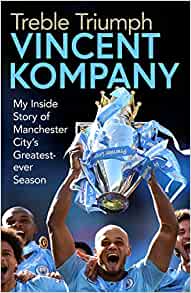 Past: If we’d been compiling this list at the start of the Premier League era, pre-Millennium, Manchester City’s story, and its players, would have looked very different indeed. Those first years of the top flight actually saw City slide all the way down to Division Two before yo-yoing back between Division One and the Premier League. It was only in 2002 that Manchester City returned to the big time, but with modest returns for a decade, until the breakthrough came in 2012 with the first Premier League title. Since then, it’s been a very different story, with Manchester City winning four of the next nine campaigns, with a lowest finish of fourth in 2016, and central to that rejuvenation has been a host of big-name incomings. Not least Sergio Aguero, who spent a decade at City and struck that famous title-winning goal, before departing in the summer and whose autobiography was published in 2014. Who could forget David Silva either – another player to give the Manchester side a decade of incredible service – for whom a tribute book was published last year. But the beating heart of the team for over a decade? None other than their captain, Vincent Kompany, a relative unknown when he arrived from Anderlecht in 2008, but who left the north-west a true City legend. So he’s the pick for City, with his 2019 book, Treble Triumph.
Past: If we’d been compiling this list at the start of the Premier League era, pre-Millennium, Manchester City’s story, and its players, would have looked very different indeed. Those first years of the top flight actually saw City slide all the way down to Division Two before yo-yoing back between Division One and the Premier League. It was only in 2002 that Manchester City returned to the big time, but with modest returns for a decade, until the breakthrough came in 2012 with the first Premier League title. Since then, it’s been a very different story, with Manchester City winning four of the next nine campaigns, with a lowest finish of fourth in 2016, and central to that rejuvenation has been a host of big-name incomings. Not least Sergio Aguero, who spent a decade at City and struck that famous title-winning goal, before departing in the summer and whose autobiography was published in 2014. Who could forget David Silva either – another player to give the Manchester side a decade of incredible service – for whom a tribute book was published last year. But the beating heart of the team for over a decade? None other than their captain, Vincent Kompany, a relative unknown when he arrived from Anderlecht in 2008, but who left the north-west a true City legend. So he’s the pick for City, with his 2019 book, Treble Triumph.
Present: A case can be made for virtually every Man City player when it comes to an autobiography. Phil Foden may only be 21, but he has already won the U17 World Cup, been a European Championship and Champions League runner-up, won an FA Cup, two Community Shields, three Premier Leagues and four League Cups! Most players would love to win half of that by the end of their careers! At the other end of the spectrum is Kyle Walker, who, ten years Foden’s senior, has played in League One, won the Championship, finished fourth at a World Cup and has experienced both the lows and highs of football. Last year’s Premier League Player of the Season Ruben Dias has had only that one season in England but has already made his mark, whilst the winner of Premier League Player of the Season for 2019/20 was another man from the blue half of Manchester – Kevin de Bruyne, whose story surely will be penned in the not-too-distant future. Another City icon, Fernandinho’s journey takes him from Brazil via Ukraine to England and now 36 he’ll surely be relishing his ninth season in the Premier League and seeking that elusive Champions League. But one player who has rewritten the script in more ways than one and whose story he has taken ownership of is Raheem Sterling. Named Golden Boy in 2014, Sterling’s journey has not been without difficulty, but his 2021 MBE attests to the challenges he’s not only overcome but faced head on. Still only 26, he has plenty of time to accomplish even more, but he’s already got a notable story to tell.
Manchester United
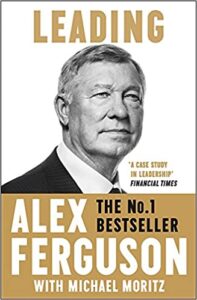 Past: Manchester United are the runaway leaders when it comes to the most Premier League titles, with thirteen. Yet despite their early domination in the nineties, their most recent trophy came nine seasons ago in 2013 – in, not at all coincidentally, Sir Alex Ferguson’s last season at Old Trafford. In recent times, the Red Devils have struggled to really put up a notable challenge for the title, though signs of recovery have been shown in the last couple of seasons under former United marksman Ole Gunnar Solksjaer. Given the size and stature of United, it’s no surprise that there are a host of autobiographies to choose from, so, as with fierce rivals Liverpool, here’s an eleven-a-side of reads. Peter Schmeichel – One (forthcoming in September); Gary Neville – Red; Jaap Stam – Head to Head; Rio Ferdinand – Thinking Out Loud (two previous autobiographies have also been published but this one reflects on the important subjects of grief and loss in Ferdinand’s life); Patrice Evra – I Love This Game (forthcoming in September); Michael Carrick – Between the Lines; Roy Keane – The Autobiography/The Second Half (surely an Extra Time is due shortly); Eric Cantona – My Notebook; Paul Scholes – My Story; Andy Cole – Fast Forward; and Dwight Yorke – The Autobiography. Notable absences are of course David Beckham, who has some five books to his name and Wayne Rooney who has his own trilogy. However, when it comes to picking one icon of Manchester United’s past it surely has to be the club’s most successful manager, Sir Alex, whose books include A Year in the Life, Managing my Life, My Autobiography and Leading.
Past: Manchester United are the runaway leaders when it comes to the most Premier League titles, with thirteen. Yet despite their early domination in the nineties, their most recent trophy came nine seasons ago in 2013 – in, not at all coincidentally, Sir Alex Ferguson’s last season at Old Trafford. In recent times, the Red Devils have struggled to really put up a notable challenge for the title, though signs of recovery have been shown in the last couple of seasons under former United marksman Ole Gunnar Solksjaer. Given the size and stature of United, it’s no surprise that there are a host of autobiographies to choose from, so, as with fierce rivals Liverpool, here’s an eleven-a-side of reads. Peter Schmeichel – One (forthcoming in September); Gary Neville – Red; Jaap Stam – Head to Head; Rio Ferdinand – Thinking Out Loud (two previous autobiographies have also been published but this one reflects on the important subjects of grief and loss in Ferdinand’s life); Patrice Evra – I Love This Game (forthcoming in September); Michael Carrick – Between the Lines; Roy Keane – The Autobiography/The Second Half (surely an Extra Time is due shortly); Eric Cantona – My Notebook; Paul Scholes – My Story; Andy Cole – Fast Forward; and Dwight Yorke – The Autobiography. Notable absences are of course David Beckham, who has some five books to his name and Wayne Rooney who has his own trilogy. However, when it comes to picking one icon of Manchester United’s past it surely has to be the club’s most successful manager, Sir Alex, whose books include A Year in the Life, Managing my Life, My Autobiography and Leading.
Present: With the arrivals of Jadon Sancho and Raphael Varane, Manchester United have added two huge talents to their roster and two who would arguably be perfect subjects for autobiographies – Sancho, still only 21, has made his mark in the Bundesliga and was named Golder Player at the U17 European Championships, whilst Varane has won nearly all there is to win in Europe as well as a World Cup for France. In terms of more familiar United faces, they don’t come much more familiar than David de Gea who has been at the club ten years and was part of the Red Devils’ last successful Premier League triumph in 2013. Marcus Rashford has been at the club boy and man and whilst he has already published a hugely inspiring book aimed at younger readers (You Are A Champion), his is surely a story that needs to be told. Harry Maguire’s impressive Euro 2020 showing was a reminder of how he became the most expensive Premier League defender, whilst Jesse Lingard’s performances on loan at West Ham last season recalled the flair and skill of the Academy product – both of whom would make for great reads. Edinson Cavani’s journey from Uruguay to Italy, France and finally to England, racking up the Coppa Italia, Ligue 1 and Copa America along the way would be worth a tome, but in keeping with the theme of Manchester United’s mercurial French mavericks, Paul Pogba gets the vote.
Newcastle United
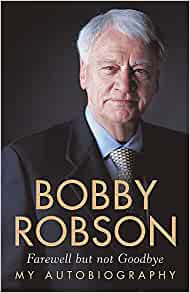 Past: Starting the Premier League era in Division 1, Newcastle were the first side to get promoted, finishing first in 1992/1993, and joining the top flight, where they stayed for some sixteen seasons. Relegation in 2009 was followed by immediate promotion in 2010 and a similar pattern ensued in 2016 when the Magpies found themselves once more in the Championship before bouncing back at the first time of asking. In their four seasons back, Newcastle have enjoyed some degree of stability but nothing quite as high-flying as their back-to-back second-placed finishes in 1996 and 1997. When it comes to former players, one name sticks out, certainly in the Premier League era – Alan Shearer, and, unsurprisingly, there’s a couple of books, with Dave Harrison, that cover the number 9’s prolific career as the League’s all-time top goalscorer, as well as the more recent My Illustrated Career. Newcastle’s other famous son, Paul Gascoigne, also has a number of books to choose from, charting successes and struggles on and off the pitch. Cult figures David Ginola and Nolberto Solano also published autobiographies, the former titled Le Magnifique and the latter Blowing My Own Trumpet, while Shay Given, who spent 12 years on Tyneside, brought out his autobiography, Any Given Sunday, in 2017. But whilst Shearer may be the player that defines Newcastle United’s Premier League history, and his statue stands in pride of place outside St James’ Park, it is joined by the manager who defined this period in the club’s recent past – Sir Bobby Robson. A couple of recent biographies by Bob Harris (Bobby Robson: The Ultimate Patriot) and Harry De Cosemo (Black & White Knight) offer new reflections on the man, but for the definitive autobiography, look no further than Farewell but Not Goodbye.
Past: Starting the Premier League era in Division 1, Newcastle were the first side to get promoted, finishing first in 1992/1993, and joining the top flight, where they stayed for some sixteen seasons. Relegation in 2009 was followed by immediate promotion in 2010 and a similar pattern ensued in 2016 when the Magpies found themselves once more in the Championship before bouncing back at the first time of asking. In their four seasons back, Newcastle have enjoyed some degree of stability but nothing quite as high-flying as their back-to-back second-placed finishes in 1996 and 1997. When it comes to former players, one name sticks out, certainly in the Premier League era – Alan Shearer, and, unsurprisingly, there’s a couple of books, with Dave Harrison, that cover the number 9’s prolific career as the League’s all-time top goalscorer, as well as the more recent My Illustrated Career. Newcastle’s other famous son, Paul Gascoigne, also has a number of books to choose from, charting successes and struggles on and off the pitch. Cult figures David Ginola and Nolberto Solano also published autobiographies, the former titled Le Magnifique and the latter Blowing My Own Trumpet, while Shay Given, who spent 12 years on Tyneside, brought out his autobiography, Any Given Sunday, in 2017. But whilst Shearer may be the player that defines Newcastle United’s Premier League history, and his statue stands in pride of place outside St James’ Park, it is joined by the manager who defined this period in the club’s recent past – Sir Bobby Robson. A couple of recent biographies by Bob Harris (Bobby Robson: The Ultimate Patriot) and Harry De Cosemo (Black & White Knight) offer new reflections on the man, but for the definitive autobiography, look no further than Farewell but Not Goodbye.
Present: The icons of Newcastle’s past make for a very hard act to follow and a number of exciting players, like Allan St Maximin and Callum Wilson, are still only in the infancy of their Tyneside journeys, whilst both Ryan Fraser and Matt Richie have had expansive careers. While Joelinton made the move to Newcastle via Germany and Austria from Brazil, Miguel Almiron came via Argentina and the MLS from his native Paraguay and remains only one of eight Paraguayan players to feature in the Premier League across its history. Jamaal Lascelles and Jonjo Shelvey both stand out, though, when it comes to the final pick. Captain Lascelles started out at Nottingham Forest before making the move to Newcastle in 2014 and has been instrumental in the last six seasons, including the Magpies’ most recent promotion from the Championship. Jonjo Shelvey, however, has a bit more of a varied journey, spending time in his youth at Arsenal, West Ham and Charlton, before breaking through at the latter. A move to Liverpool followed, but three years after his arrival he departed for Swansea City before finally settling on Tyneside in 2016. Shelvey has made over 170 appearances for the Magpies.
Norwich City
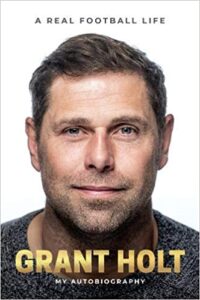 Past: No one could accuse Norwich City of not having had an eventful past, not least in the last two decades of the Premier League era, in which they’ve been relegated from the top-flight four times, relegated from the Championship once and experienced no less than six promotions. Canaries fans will surely be hoping for a smoother ride this time out back in the Premier League, following their immediate promotion last season. Fans looking for a Norwich autobiography are not overwhelmed with choice, it has to be said, but there are a few knocking around out there, including top striker in 2003/04 Darren Huckerby and former goalkeeper Bryan Gunn, whilst Iwan Roberts’ All I Want For Christmas offers an insider look at Norwich’s promotion-winning 2003/04 season, taking the campaign month by month. However, pick of the bunch goes to Grant Holt, with his autobiography A Real Football Life. Club top scorer in League One in 2009/10, the Championship in 2010/2011 and three consecutive seasons in the Premier League from 2011 to 2014, although, surely, he’s remembered just as fondly in wider circles for his foray into wrestling in 2018.
Past: No one could accuse Norwich City of not having had an eventful past, not least in the last two decades of the Premier League era, in which they’ve been relegated from the top-flight four times, relegated from the Championship once and experienced no less than six promotions. Canaries fans will surely be hoping for a smoother ride this time out back in the Premier League, following their immediate promotion last season. Fans looking for a Norwich autobiography are not overwhelmed with choice, it has to be said, but there are a few knocking around out there, including top striker in 2003/04 Darren Huckerby and former goalkeeper Bryan Gunn, whilst Iwan Roberts’ All I Want For Christmas offers an insider look at Norwich’s promotion-winning 2003/04 season, taking the campaign month by month. However, pick of the bunch goes to Grant Holt, with his autobiography A Real Football Life. Club top scorer in League One in 2009/10, the Championship in 2010/2011 and three consecutive seasons in the Premier League from 2011 to 2014, although, surely, he’s remembered just as fondly in wider circles for his foray into wrestling in 2018.
Present: As Daniel Farke prepares his team for another go at the Premier League, he’s assembled a squad with a mixture of youth and experience. Exciting youngsters like Todd Cantwell, Max Aarons and loanee Billy Gilmour are all ones for the future but are surrounded by some incredible support in older heads. Grant Hanley started his youth career with Queen of the South before joining The Railwaymen of Crewe Alexandra, returning north of the border to Rangers and finally breaking through at Blackburn Rovers. His travels have since taken him to Newcastle before a move to the Canaries in 2017. In addition, he’s earned over 30 caps for Scotland and was part of their historic return to the Euros this summer. Teemu Pukki’s journey is even more distinct, starting out in his native Finland, before moving to Sevilla in Spain, HJK in Finland, Schalke in Germany, Celtic, Brondby in Denmark and finally Norwich, where he didn’t take long to make his mark, being named player of the season in the Championship in his first year in England and winning the EFL Championship Golden Boot. He has twice been Finnish Footballer of the year and once Finnish Sports Personality of the Year and in his first campaign in the Premier League won Player of the Month in August 2019. Two years Pukki’s senior, Tim Krul has had a similarly eclectic career, starting out at ADO Den Haag in the Netherlands before making his way to Newcastle, where loans at clubs from Falkirk to Ajax, Carlisle to AZ Alkmaar followed. On the world stage too, despite fairly limited caps, Krul was part of the team that finished third at the 2014 World Cup, where his contribution was notable in his being the first keeper sent on as substitute specifically for a penalty shootout at the World Cup – and what’s more, he delivered, saving two of Costa Rica’s five penalties to see his side advance.
 All good things come in threes, just ask any footballer who’s ever scored a hat-trick. In fact, ask Peter Crouch who has scored many a hat-trick and has just released his third book. So that’s a hat-trick for a England and a hat-trick of books to his name, surely placing the former forward in a league of his own as the only person to have achieved a triumvirate in both fields? Answers on a postcard if you know otherwise. But, either way, both accomplishments are no mean feat and just as with a hat-trick the third goal seals the deal, so too does Crouch’s third book affirm what his previous two tomes pointed towards: Crouch is a natural and compelling storyteller. Having previously covered the weird and wonderful life of being a footballer to great effect, this latest book changes its focus slightly to the weird and wonderful life of being a former football, that is the jobs and careers of retired footballers, and, no, before you ask, it’s not all working on their golf handicap, though, I’m sure, a few of them do that too.
All good things come in threes, just ask any footballer who’s ever scored a hat-trick. In fact, ask Peter Crouch who has scored many a hat-trick and has just released his third book. So that’s a hat-trick for a England and a hat-trick of books to his name, surely placing the former forward in a league of his own as the only person to have achieved a triumvirate in both fields? Answers on a postcard if you know otherwise. But, either way, both accomplishments are no mean feat and just as with a hat-trick the third goal seals the deal, so too does Crouch’s third book affirm what his previous two tomes pointed towards: Crouch is a natural and compelling storyteller. Having previously covered the weird and wonderful life of being a footballer to great effect, this latest book changes its focus slightly to the weird and wonderful life of being a former football, that is the jobs and careers of retired footballers, and, no, before you ask, it’s not all working on their golf handicap, though, I’m sure, a few of them do that too. Past: As one of the most successful teams in English football, the Premier League eluded Liverpool for almost three decades, but after near-misses in 2002, 2009, 2014 and 2019, they finally put their PL duck behind them, scooping the top trophy in 2020. For a club that has had FA Cup, League Cup and Champions League success in that time, the Premier League was a long time coming, but the 2019/20 team guaranteed their place in the Reds’ long history. When it comes to past players, the Premier League roster reads like a who’s who of the best footballers in the world, so it comes as no surprise that a fair few autobiographies have followed. In fact, Liverpool are amongst the best represented when it comes to former players. Indeed, you can make a veritable XI of Liverpool Premier League autobiographies: Dudek – A Big Pole in Our Goal (which just edges out Pepe Reina’s Pepe purely on its title); Jamie Carragher – My Autobiography/The Greatest Games; Neil Ruddock – Hell Razor/The World According to Razor; Sami Hyppia – From Voikkaa to the Premiership; John Arne Riise – Running Man; Jamie Redknapp – Me, Family and the Making of A Footballer; Steven Gerrard – My Story; Gary MacAllister – Captain’s Log; Fernando Torres – El Nino; Robbie Fowler – My Life in Football; and Luis Suarez – Crossing The Line. That list excludes books by Xabi Alonso and Dirk Kuyt which are yet to be translated into English, as well as books by Bruce Grobebelaar, Jason McAteer and Michael Owen. Whilst John Barnes published his autobiography in 1999, my pick is his forthcoming book The Uncomfortable Truth About Racism.
Past: As one of the most successful teams in English football, the Premier League eluded Liverpool for almost three decades, but after near-misses in 2002, 2009, 2014 and 2019, they finally put their PL duck behind them, scooping the top trophy in 2020. For a club that has had FA Cup, League Cup and Champions League success in that time, the Premier League was a long time coming, but the 2019/20 team guaranteed their place in the Reds’ long history. When it comes to past players, the Premier League roster reads like a who’s who of the best footballers in the world, so it comes as no surprise that a fair few autobiographies have followed. In fact, Liverpool are amongst the best represented when it comes to former players. Indeed, you can make a veritable XI of Liverpool Premier League autobiographies: Dudek – A Big Pole in Our Goal (which just edges out Pepe Reina’s Pepe purely on its title); Jamie Carragher – My Autobiography/The Greatest Games; Neil Ruddock – Hell Razor/The World According to Razor; Sami Hyppia – From Voikkaa to the Premiership; John Arne Riise – Running Man; Jamie Redknapp – Me, Family and the Making of A Footballer; Steven Gerrard – My Story; Gary MacAllister – Captain’s Log; Fernando Torres – El Nino; Robbie Fowler – My Life in Football; and Luis Suarez – Crossing The Line. That list excludes books by Xabi Alonso and Dirk Kuyt which are yet to be translated into English, as well as books by Bruce Grobebelaar, Jason McAteer and Michael Owen. Whilst John Barnes published his autobiography in 1999, my pick is his forthcoming book The Uncomfortable Truth About Racism. Past: If we’d been compiling this list at the start of the Premier League era, pre-Millennium, Manchester City’s story, and its players, would have looked very different indeed. Those first years of the top flight actually saw City slide all the way down to Division Two before yo-yoing back between Division One and the Premier League. It was only in 2002 that Manchester City returned to the big time, but with modest returns for a decade, until the breakthrough came in 2012 with the first Premier League title. Since then, it’s been a very different story, with Manchester City winning four of the next nine campaigns, with a lowest finish of fourth in 2016, and central to that rejuvenation has been a host of big-name incomings. Not least Sergio Aguero, who spent a decade at City and struck that famous title-winning goal, before departing in the summer and whose autobiography was published in 2014. Who could forget David Silva either – another player to give the Manchester side a decade of incredible service – for whom a tribute book was published last year. But the beating heart of the team for over a decade? None other than their captain, Vincent Kompany, a relative unknown when he arrived from Anderlecht in 2008, but who left the north-west a true City legend. So he’s the pick for City, with his 2019 book, Treble Triumph.
Past: If we’d been compiling this list at the start of the Premier League era, pre-Millennium, Manchester City’s story, and its players, would have looked very different indeed. Those first years of the top flight actually saw City slide all the way down to Division Two before yo-yoing back between Division One and the Premier League. It was only in 2002 that Manchester City returned to the big time, but with modest returns for a decade, until the breakthrough came in 2012 with the first Premier League title. Since then, it’s been a very different story, with Manchester City winning four of the next nine campaigns, with a lowest finish of fourth in 2016, and central to that rejuvenation has been a host of big-name incomings. Not least Sergio Aguero, who spent a decade at City and struck that famous title-winning goal, before departing in the summer and whose autobiography was published in 2014. Who could forget David Silva either – another player to give the Manchester side a decade of incredible service – for whom a tribute book was published last year. But the beating heart of the team for over a decade? None other than their captain, Vincent Kompany, a relative unknown when he arrived from Anderlecht in 2008, but who left the north-west a true City legend. So he’s the pick for City, with his 2019 book, Treble Triumph. Past: Manchester United are the runaway leaders when it comes to the most Premier League titles, with thirteen. Yet despite their early domination in the nineties, their most recent trophy came nine seasons ago in 2013 – in, not at all coincidentally, Sir Alex Ferguson’s last season at Old Trafford. In recent times, the Red Devils have struggled to really put up a notable challenge for the title, though signs of recovery have been shown in the last couple of seasons under former United marksman Ole Gunnar Solksjaer. Given the size and stature of United, it’s no surprise that there are a host of autobiographies to choose from, so, as with fierce rivals Liverpool, here’s an eleven-a-side of reads. Peter Schmeichel – One (forthcoming in September); Gary Neville – Red; Jaap Stam – Head to Head; Rio Ferdinand – Thinking Out Loud (two previous autobiographies have also been published but this one reflects on the important subjects of grief and loss in Ferdinand’s life); Patrice Evra – I Love This Game (forthcoming in September); Michael Carrick – Between the Lines; Roy Keane – The Autobiography/The Second Half (surely an Extra Time is due shortly); Eric Cantona – My Notebook; Paul Scholes – My Story; Andy Cole – Fast Forward; and Dwight Yorke – The Autobiography. Notable absences are of course David Beckham, who has some five books to his name and Wayne Rooney who has his own trilogy. However, when it comes to picking one icon of Manchester United’s past it surely has to be the club’s most successful manager, Sir Alex, whose books include A Year in the Life, Managing my Life, My Autobiography and Leading.
Past: Manchester United are the runaway leaders when it comes to the most Premier League titles, with thirteen. Yet despite their early domination in the nineties, their most recent trophy came nine seasons ago in 2013 – in, not at all coincidentally, Sir Alex Ferguson’s last season at Old Trafford. In recent times, the Red Devils have struggled to really put up a notable challenge for the title, though signs of recovery have been shown in the last couple of seasons under former United marksman Ole Gunnar Solksjaer. Given the size and stature of United, it’s no surprise that there are a host of autobiographies to choose from, so, as with fierce rivals Liverpool, here’s an eleven-a-side of reads. Peter Schmeichel – One (forthcoming in September); Gary Neville – Red; Jaap Stam – Head to Head; Rio Ferdinand – Thinking Out Loud (two previous autobiographies have also been published but this one reflects on the important subjects of grief and loss in Ferdinand’s life); Patrice Evra – I Love This Game (forthcoming in September); Michael Carrick – Between the Lines; Roy Keane – The Autobiography/The Second Half (surely an Extra Time is due shortly); Eric Cantona – My Notebook; Paul Scholes – My Story; Andy Cole – Fast Forward; and Dwight Yorke – The Autobiography. Notable absences are of course David Beckham, who has some five books to his name and Wayne Rooney who has his own trilogy. However, when it comes to picking one icon of Manchester United’s past it surely has to be the club’s most successful manager, Sir Alex, whose books include A Year in the Life, Managing my Life, My Autobiography and Leading. Past: Starting the Premier League era in Division 1, Newcastle were the first side to get promoted, finishing first in 1992/1993, and joining the top flight, where they stayed for some sixteen seasons. Relegation in 2009 was followed by immediate promotion in 2010 and a similar pattern ensued in 2016 when the Magpies found themselves once more in the Championship before bouncing back at the first time of asking. In their four seasons back, Newcastle have enjoyed some degree of stability but nothing quite as high-flying as their back-to-back second-placed finishes in 1996 and 1997. When it comes to former players, one name sticks out, certainly in the Premier League era – Alan Shearer, and, unsurprisingly, there’s a couple of books, with Dave Harrison, that cover the number 9’s prolific career as the League’s all-time top goalscorer, as well as the more recent My Illustrated Career. Newcastle’s other famous son, Paul Gascoigne, also has a number of books to choose from, charting successes and struggles on and off the pitch. Cult figures David Ginola and Nolberto Solano also published autobiographies, the former titled Le Magnifique and the latter Blowing My Own Trumpet, while Shay Given, who spent 12 years on Tyneside, brought out his autobiography, Any Given Sunday, in 2017. But whilst Shearer may be the player that defines Newcastle United’s Premier League history, and his statue stands in pride of place outside St James’ Park, it is joined by the manager who defined this period in the club’s recent past – Sir Bobby Robson. A couple of recent biographies by Bob Harris (Bobby Robson: The Ultimate Patriot) and Harry De Cosemo (Black & White Knight) offer new reflections on the man, but for the definitive autobiography, look no further than Farewell but Not Goodbye.
Past: Starting the Premier League era in Division 1, Newcastle were the first side to get promoted, finishing first in 1992/1993, and joining the top flight, where they stayed for some sixteen seasons. Relegation in 2009 was followed by immediate promotion in 2010 and a similar pattern ensued in 2016 when the Magpies found themselves once more in the Championship before bouncing back at the first time of asking. In their four seasons back, Newcastle have enjoyed some degree of stability but nothing quite as high-flying as their back-to-back second-placed finishes in 1996 and 1997. When it comes to former players, one name sticks out, certainly in the Premier League era – Alan Shearer, and, unsurprisingly, there’s a couple of books, with Dave Harrison, that cover the number 9’s prolific career as the League’s all-time top goalscorer, as well as the more recent My Illustrated Career. Newcastle’s other famous son, Paul Gascoigne, also has a number of books to choose from, charting successes and struggles on and off the pitch. Cult figures David Ginola and Nolberto Solano also published autobiographies, the former titled Le Magnifique and the latter Blowing My Own Trumpet, while Shay Given, who spent 12 years on Tyneside, brought out his autobiography, Any Given Sunday, in 2017. But whilst Shearer may be the player that defines Newcastle United’s Premier League history, and his statue stands in pride of place outside St James’ Park, it is joined by the manager who defined this period in the club’s recent past – Sir Bobby Robson. A couple of recent biographies by Bob Harris (Bobby Robson: The Ultimate Patriot) and Harry De Cosemo (Black & White Knight) offer new reflections on the man, but for the definitive autobiography, look no further than Farewell but Not Goodbye. Past: No one could accuse Norwich City of not having had an eventful past, not least in the last two decades of the Premier League era, in which they’ve been relegated from the top-flight four times, relegated from the Championship once and experienced no less than six promotions. Canaries fans will surely be hoping for a smoother ride this time out back in the Premier League, following their immediate promotion last season. Fans looking for a Norwich autobiography are not overwhelmed with choice, it has to be said, but there are a few knocking around out there, including top striker in 2003/04 Darren Huckerby and former goalkeeper Bryan Gunn, whilst Iwan Roberts’ All I Want For Christmas offers an insider look at Norwich’s promotion-winning 2003/04 season, taking the campaign month by month. However, pick of the bunch goes to Grant Holt, with his autobiography A Real Football Life. Club top scorer in League One in 2009/10, the Championship in 2010/2011 and three consecutive seasons in the Premier League from 2011 to 2014, although, surely, he’s remembered just as fondly in wider circles for his foray into wrestling in 2018.
Past: No one could accuse Norwich City of not having had an eventful past, not least in the last two decades of the Premier League era, in which they’ve been relegated from the top-flight four times, relegated from the Championship once and experienced no less than six promotions. Canaries fans will surely be hoping for a smoother ride this time out back in the Premier League, following their immediate promotion last season. Fans looking for a Norwich autobiography are not overwhelmed with choice, it has to be said, but there are a few knocking around out there, including top striker in 2003/04 Darren Huckerby and former goalkeeper Bryan Gunn, whilst Iwan Roberts’ All I Want For Christmas offers an insider look at Norwich’s promotion-winning 2003/04 season, taking the campaign month by month. However, pick of the bunch goes to Grant Holt, with his autobiography A Real Football Life. Club top scorer in League One in 2009/10, the Championship in 2010/2011 and three consecutive seasons in the Premier League from 2011 to 2014, although, surely, he’s remembered just as fondly in wider circles for his foray into wrestling in 2018. The lockdown during COVID saw people turn to various activities whilst at home. For Steven End it provided the opportunity to produce a book, prompted by the loss of a relative to dementia and the increasing cases in the football world, called Football for Brains! The title reflecting that this is predominantly a quiz book of football questions to get the grey matter ticking, and additionally that the author is making donation to The Scores Project (details below) looking into dementia at the University of East Anglia.
The lockdown during COVID saw people turn to various activities whilst at home. For Steven End it provided the opportunity to produce a book, prompted by the loss of a relative to dementia and the increasing cases in the football world, called Football for Brains! The title reflecting that this is predominantly a quiz book of football questions to get the grey matter ticking, and additionally that the author is making donation to The Scores Project (details below) looking into dementia at the University of East Anglia. Author Edward Couzens-Lake has produced a number of books on Norwich City, with this latest offering part of a series which has seen the Canaries explored through the Seventies and Eighties. Given the volume of work that the author has produced on the Norfolk club, there is no doubt that he is an authoritative voice on the team from Carrow Road and it is in reflected in this particular book.
Author Edward Couzens-Lake has produced a number of books on Norwich City, with this latest offering part of a series which has seen the Canaries explored through the Seventies and Eighties. Given the volume of work that the author has produced on the Norfolk club, there is no doubt that he is an authoritative voice on the team from Carrow Road and it is in reflected in this particular book. Robert Enke (2009), Dale Roberts (2010), Gary Speed (2011) – three men from the world of football who in recent years took their own lives. That list has nearly been added to by ex-players such as Dean Windass and the author of My Fight with Life, Leon McKenzie, who have both attempted suicide.
Robert Enke (2009), Dale Roberts (2010), Gary Speed (2011) – three men from the world of football who in recent years took their own lives. That list has nearly been added to by ex-players such as Dean Windass and the author of My Fight with Life, Leon McKenzie, who have both attempted suicide.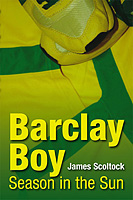 “My name’s James Scoltock, I’m a football fan and so very happily one dimensional” declares the author in his review of a dramatic 12 months for his club, Norwich City.
“My name’s James Scoltock, I’m a football fan and so very happily one dimensional” declares the author in his review of a dramatic 12 months for his club, Norwich City. Saturday 18 February 2012 (12.00pm)
Saturday 18 February 2012 (12.00pm) The last game of the day will see an Arsenal team fresh from a mauling in Milan, take on Sunderland who recently have enjoyed a resurgence under Martin O’Neill. The Sunderland boss will tell his team to forget about the 2-1 loss they suffered only last week to The Gunners and will hope to compound an awful week for Arsene Wenger by dumping Arsenal out of the Cup. Black Cats fans of a certain age will remember the 2-1 win against Arsenal in the Semi-Final in 1973 when Sunderland went on to lift the Cup after beating Leeds United in the Final. I’m going for Sunderland to take this one, as once more another season for The Gunners come to nothing.
The last game of the day will see an Arsenal team fresh from a mauling in Milan, take on Sunderland who recently have enjoyed a resurgence under Martin O’Neill. The Sunderland boss will tell his team to forget about the 2-1 loss they suffered only last week to The Gunners and will hope to compound an awful week for Arsene Wenger by dumping Arsenal out of the Cup. Black Cats fans of a certain age will remember the 2-1 win against Arsenal in the Semi-Final in 1973 when Sunderland went on to lift the Cup after beating Leeds United in the Final. I’m going for Sunderland to take this one, as once more another season for The Gunners come to nothing. Stevenage and Tottenham were involved a real old ding-dong of a game which belied the final score-line of 0-0. Whilst there was not a great many shots on goal, it was an all-action Cup-tie. Spurs did have the ball in the net and were perhaps unfortunate that Scott Parker was on the goal-line as he deflected in Saha’s goal bound effort. That would have been harsh on Stevenage who served a replay.
Stevenage and Tottenham were involved a real old ding-dong of a game which belied the final score-line of 0-0. Whilst there was not a great many shots on goal, it was an all-action Cup-tie. Spurs did have the ball in the net and were perhaps unfortunate that Scott Parker was on the goal-line as he deflected in Saha’s goal bound effort. That would have been harsh on Stevenage who served a replay.